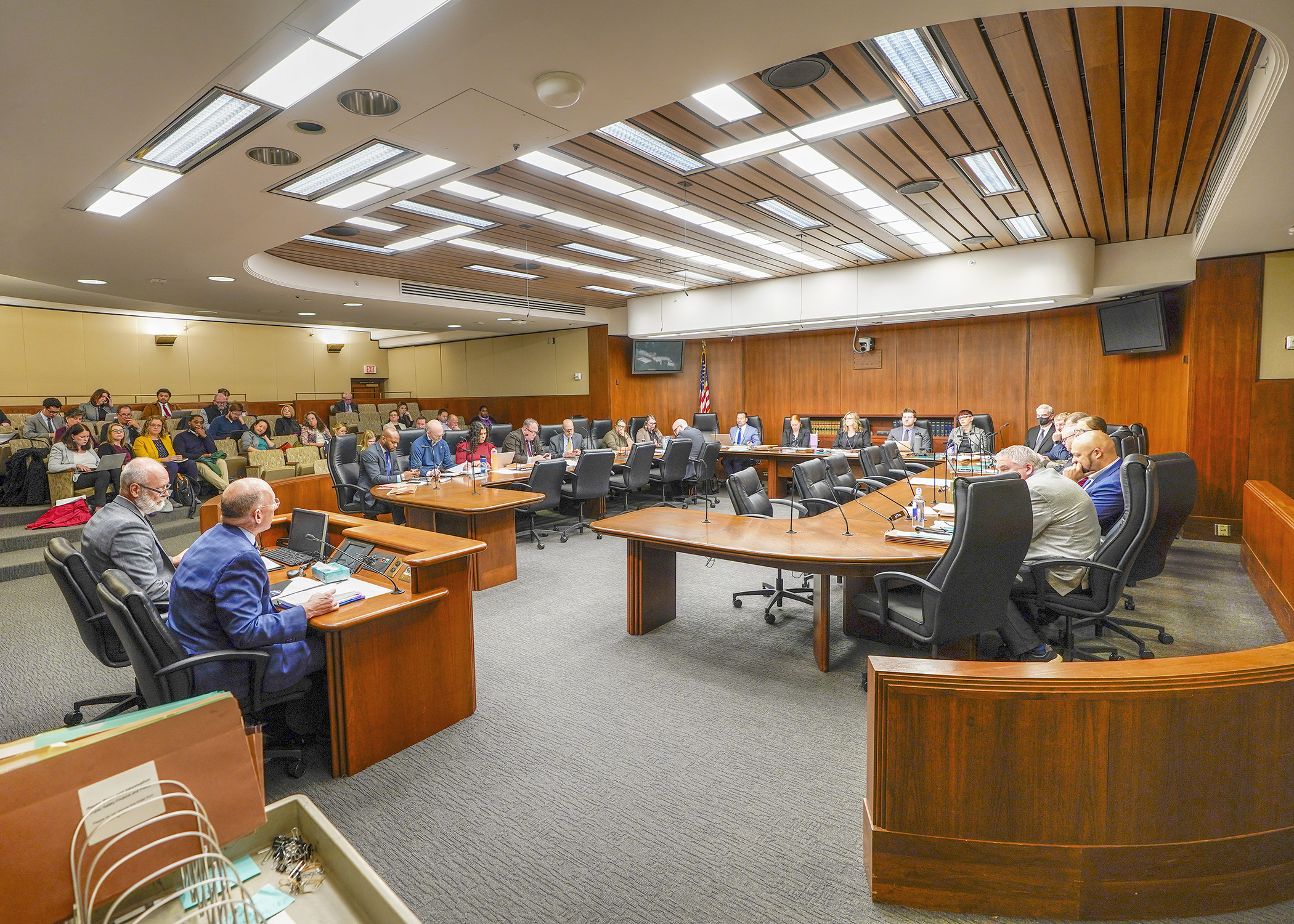Supplemental public safety spending ‘a Band-Aid,’ committee chair warns

Rep. Kelly Moller (DFL-Shoreview) is very clear that the $9.56 million in the supplemental finance bill approved by the House Public Safety Finance and Policy Committee Tuesday will do a lot of good to help crime victims throughout the state.
But she is equally clear that the amount isn’t sufficient to help all the people who have suffered sexual assault, domestic violence, and child abuse.
“This is just a Band-Aid to get us through to the next [budget] cycle,” she said. “We need to think more long-term about how we fund these really important programs. They are absolutely essential to Minnesota.”
The Moller-sponsored HF5216, as amended, next goes to the House Ways and Means Committee.
Marcia Milliken, executive director of the Minnesota Children’s Alliance, said funding to crime victim services is especially critical now, because the federal government has recently cut funding for these types of services to all states by 42%. “We are at a crisis point that cannot wait until the next biennium.”
Specifically, the bill would provide a onetime $11.29 million General Fund appropriation to the Department of Public Safety in fiscal year 2025 in the following amounts:
- $9.56 million for direct assistance to crime victim survivors;
- $133,000 for a Motor Vehicle Compliance Working Group;
- $100,000 for law enforcement therapy dog grants; and
- $50,000 for a Task Force on Domestic Violence and Firearms.
In addition, the bill would appropriate $1.45 million for public safety telecommunicator training and certification with funds from the 911 emergency telecommunications service account in the special revenue fund.
[MORE: View the spreadsheet]
A fiscal year 2024 appropriation
Only one item in the bill would request a fiscal year 2024 appropriation: a $5.9 million "operating adjustment” for the Department of Corrections.
Commissioner Paul Schnell said the extra money is already being used to hire more staff at the state’s 11 prisons and boost their salaries.
That money is starting to reverse high staff turnover and shortages of corrections officers the department had been facing for several years. Those conditions have reduced the safety of staff and inmates alike and increased the frequency of lockdowns needed to maintain control.
“It is an investment in stabilizing our workforce so those who are incarcerated are not subject to rolling lockdowns and have regular access to transformational rehabilitative programing,” Schnell said.
Policy provision sparks debate
A provision in the bill originating from HF1832, sponsored by Rep. Cedrick Frazier (DFL-New Hope), sparked debate and Republican amendments.
The provision would require a peace officer making a traffic stop for a secondary offense of the motor vehicle code to inform the vehicle’s operator of a reason for the stop before engaging in questioning related to the suspected violation.
“What we are trying to do is decrease interactions that may be heightened or increased that may lead to further interactions that from what we have seen in our state in recent years could lead to very volatile and violent interactions which could lead to further distrust among law enforcement and communities,” Frazier told the committee March 21.
Rep. Paul Novotny (R-Elk River), a former police officer, said the bill’s language is too strict and wouldn’t protect officers from getting into legal trouble if the circumstances of a traffic stop suddenly change, putting an officer’s life in danger, and preventing the officer from abiding by the procedure proposed in the bill.
“I see nothing but a quagmire … another opportunity for the lawyers to go after the officers out there doing true public safety work,” he said.
He unsuccessfully offered an amendment that would outline several conditions whereby an officer would not need to follow the proposed procedure.
***
What’s in the bill?
The following are selected bills that have been incorporated in whole or in part into the public safety finance bill:
- HF1832 (Frazier)
- HF3398 (Moller)
- HF3966 (Wolgamott)
- HF4215 (Mueller)
- HF4244 (Becker-Finn)
- HF4387 (Pinto)
- HF4959 (Pinto)
Related Articles
Search Session Daily
Advanced Search OptionsPriority Dailies
Speaker Emerita Melissa Hortman, husband killed in attack
By HPIS Staff House Speaker Emerita Melissa Hortman (DFL-Brooklyn Park) and her husband, Mark, were fatally shot in their home early Saturday morning.
Gov. Tim Walz announced the news dur...
House Speaker Emerita Melissa Hortman (DFL-Brooklyn Park) and her husband, Mark, were fatally shot in their home early Saturday morning.
Gov. Tim Walz announced the news dur...
Lawmakers deliver budget bills to governor's desk in one-day special session
By Mike Cook About that talk of needing all 21 hours left in a legislative day to complete a special session?
House members were more than up to the challenge Monday. Beginning at 10 a.m...
About that talk of needing all 21 hours left in a legislative day to complete a special session?
House members were more than up to the challenge Monday. Beginning at 10 a.m...